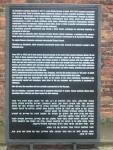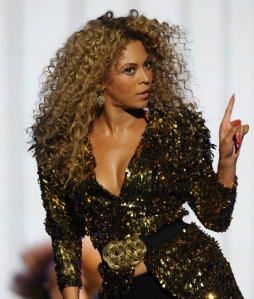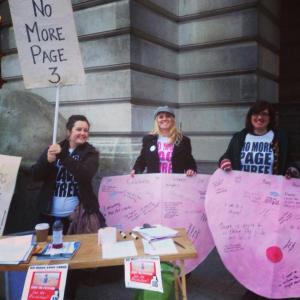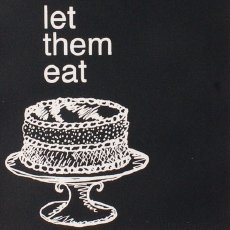A piece I wrote for Vagenda Magazine in August 2014
(‘name n. A word or words by which an entity is designated and distinguished from others….’)
In recent years, as I have watched more and more of my peers shuffle off into marriage, one thing that never fails to fascinate me is that age old question relating to what happens to the bride’s surname after the big ‘I do’. I am not ashamed to admit that there have been many times when I have been scrolling through my Facebook newsfeed only to become slightly baffled upon stumbling across a post by someone I don’t know. This is then always followed up with a slight twang of – dare I say it – disappointment, when I realise that, actually, I do know them. They just got married. So, as a perpetual fan of the question mark, I think it’s time we started to really question why it is that we choose (and it is a choice) to hold on to a tradition that dates back to a time when women were – figuratively and literally – the property of men. So, is it really a harmless tradition, or an outdated nod to the patriarchy?
My surname follows the Hispanic naming tradition whereby the child takes both the father’s and the mother’s surname. Everyone has two surnames that last from birth until death, women do not change their names when they get married, and neither do men. When a couple decides to have a child, it is accepted that each parent will pass on one of their surnames (traditionally the first surname which, in Spanish speaking countries, is the paternal line) – so that their child will also have two surnames. For example, Should John Smith marry Mary Jones, their child would become Baby Smith Jones. No hyphen, no changes, no merger names (Smones/Jonith etc) – just two names.
I like this tradition for two reasons: firstly, at no point is anyone required to change their name. Secondly, children bear the name of both parents – no parent is overlooked. Should I one day decide to have a child, hell will experience an ice age of truly epic proportions before I allow said child to pass through her/his existence without my surname (although quite how I will choose which of my surnames to pass on, I have no idea, perhaps I’ll put them in a hat). I recognise, however, that this system is not perfect – tradition dictates that it is the male/paternal lines that are passed down through generations (interestingly, the Portuguese/Brazilian system does the opposite in that it is the maternal lines that are passed down). In an attempt to redress the imbalance of the Spanish system, I always told myself that, if I were to ever become a writer, my pen-name would be a tribute to my grandmothers’ surnames. It’s a workaround at best.
For reasons that go above and beyond my feminism, I have always struggled with the concept that, just because you decide to legally and/or spiritually align yourself with someone for the rest of your life, you are suddenly given a new identity. This is not just an issue for me as a woman, it is an issue for me as an individual. I recognise that such an attachment to one’s name is not universal, and I recognise that it is, perhaps, owing to cultural influences on my father’s side, that I attribute so much to it. But, cultural traditions aside (I see no value in tradition for tradition’s sake), I absolutely and categorically reject the idea that, should I ever decide to get married, it follows that I will change my surname.
For me, I would consider it to be disrespectful to my parents, my grandparents and, crucially, myself, if I chose to erase or alter something that is so fundamentally a part of who I am – my name. Sure, part of me likes the fact that my bizarre name reflects my cultural cocktail of a background, and yes I like that it’s unique (Facebook has confirmed that there is no one else with my name out there), but mainly I like it because it is mine and because it connects me to the people I love. It has been the most constant and unchanging thing in my life – it never changes, never alters, I knew my name before I knew anything else. And it’s just not something I am willing to part with.
Of course, I am fortunate in that I have a family that I love wholeheartedly, so that I would never want to be disassociated from them, and I can understand (particularly in cases of estrangement, abuse etc.) when people decide to change their names for reasons that are unrelated to marriage. Or even when someone just chooses to take on a completely different name: I know of someone who changed his surname to that of his favourite author and I applaud his choice because it was a choice that he made about his name and his identity. It wasn’t a name that was assigned to him, it was an autonomous decision.
The concept of adopting your husband’s surname is an issue particularly for women of the English speaking world, wherein the tradition is to take your husband’s name upon marriage. At school, I remember girls writing their first names alongside the surname of their boyfriend/crush/favourite pop star – their own surname sent to dust – to test whether or not the names ‘matched’. Of course, you can argue that this is all harmless fun, and to an extent that may be true. However, when innocent childhood fantasies about becoming Mrs Justin Timberlake translate into adult decisions about becoming Mrs [insert husband’s name here], it becomes less harmless and more deserving of scrutiny. It is odd to me that we accept so easily the concept of becoming Mrs Someone Else, without ever questioning why.
In Greece, the tradition of changing one’s surname at the point of marriage was made illegal in 1983 and the surname of any children is made as a collective decision between the parents; it can be that of the mother, father or both. That was 31 years ago, and yet I am writing this article as a British woman, knowing that my view is a minority one in my country. Ours is a tradition that baffles many outsiders looking in, including an Iranian friend of mine (in Iran women are legally not permitted to change their surname when they marry): ‘In my country you can’t leave the country without your husband’s permission, but you have your name. We haven’t got freedom but you keep your identity. Women here [in the UK] have so much freedom…. but they change their names?’
There are flaws in every system, and Greece and Iran are no exceptions. I, for one, am not proposing that we legislate against women changing their names upon marrying – history shows us that the legislation of identity treads dangerous waters – but I am suggesting that the tone of discussion start to change, so that instead of asking, ‘why shouldn’t I change my name?’ we ask ourselves, ‘why should I change my name?’ What do we stand to gain? What do we stand to lose?
When it comes to issues relating to gender equality, I try to apply my own personal feminist litmus test, consisting of two key questions:
Would we accept the same rule if it were applied to men? For example, when I am asked if, as a lifelong follower of football, I understand the offside rule (cue eye-roll). My response is always, without exception, ‘would you ask me this question if I were a man?’
Would we accept the same rule if it were applied to any other social, economic or political (non-gender specific) group? For example, when people choose to dismiss sexist and misogynistic jokes/comments/actions as ‘banter’; would we be so quick to dismiss racist, homophobic or xenophobic behaviour, in the name of ‘banter’?
If the answer to one or both of these questions is ‘no’, there is a high chance that we are looking at behaviours and/or assumptions reserved exclusively for women, because they are women. If we apply the same questions to the issue of surnames, the conclusion I reach is that this is a custom that applies to women, because they are women and, therefore, warrants careful critical analysis.
I know that many women choose to adopt their husband’s name for the sake of their future children, in order to maintain some kind of familial unity by name. This (societal) assumption that my children will have someone else’s name, but not my own, is simply not something I can accept. Why should my (or any) child’s surname automatically default to being that of their father? Is his name somehow more important than mine? (If your answer here is ‘yes’, are you suggesting that he is somehow more important than me?) Given that his contribution to the child’s gene-pool will be no greater than mine; given that I would elect to play quite a substantial role in the upbringing of said child; and given that the child would be legally assigned to me (either via a nine month camp-out en utero, or via adoption), I am somewhat reluctant to let my contribution to this hypothetical human go unnoticed.
As for it being a way in which to unite a family – will a name ensure that a family stays together? Will it guarantee a happy and fulfilling family life and home? No. Divorce rates tell us otherwise. I venture that love and commitment would be a better, and more reliable, method. Can we not be united together as human beings, without becoming one another? In the words of a friend, “why would I want to be Mrs Him?”
I would encourage all women to think carefully before shedding their own name. My own view, however, does not extend to criticising or thinking less of women who do choose to adopt their husband’s name. I may not understand their choice, but I wholeheartedly respect that it is their choice. And that is what counts – the choice – be you a feminist or not. There is no right or wrong answer, and yes you can be a feminist and take your husband’s name. As feminists, we have long fought against society’s patriarchal expectations of us as women, against a gender-hierarchy that forces women to accept decisions made, not by us, but on our behalf, so let us not start telling one another what to do. The choice is yours to make, and yours alone.
As for me, I was born with a double-barrelled name, and – notwithstanding some bizarre circumstance where I end up in a witness protection programme – I intend to die with that same double-barrelled name. Unhyphenated, unaltered, unchanged. What’s in a name? Quite a lot.
– See more at: http://vagendamagazine.com/2014/08/becoming-mrs-someone-else-whats-in-a-name/#sthash.jVoArGag.dpuf
















































